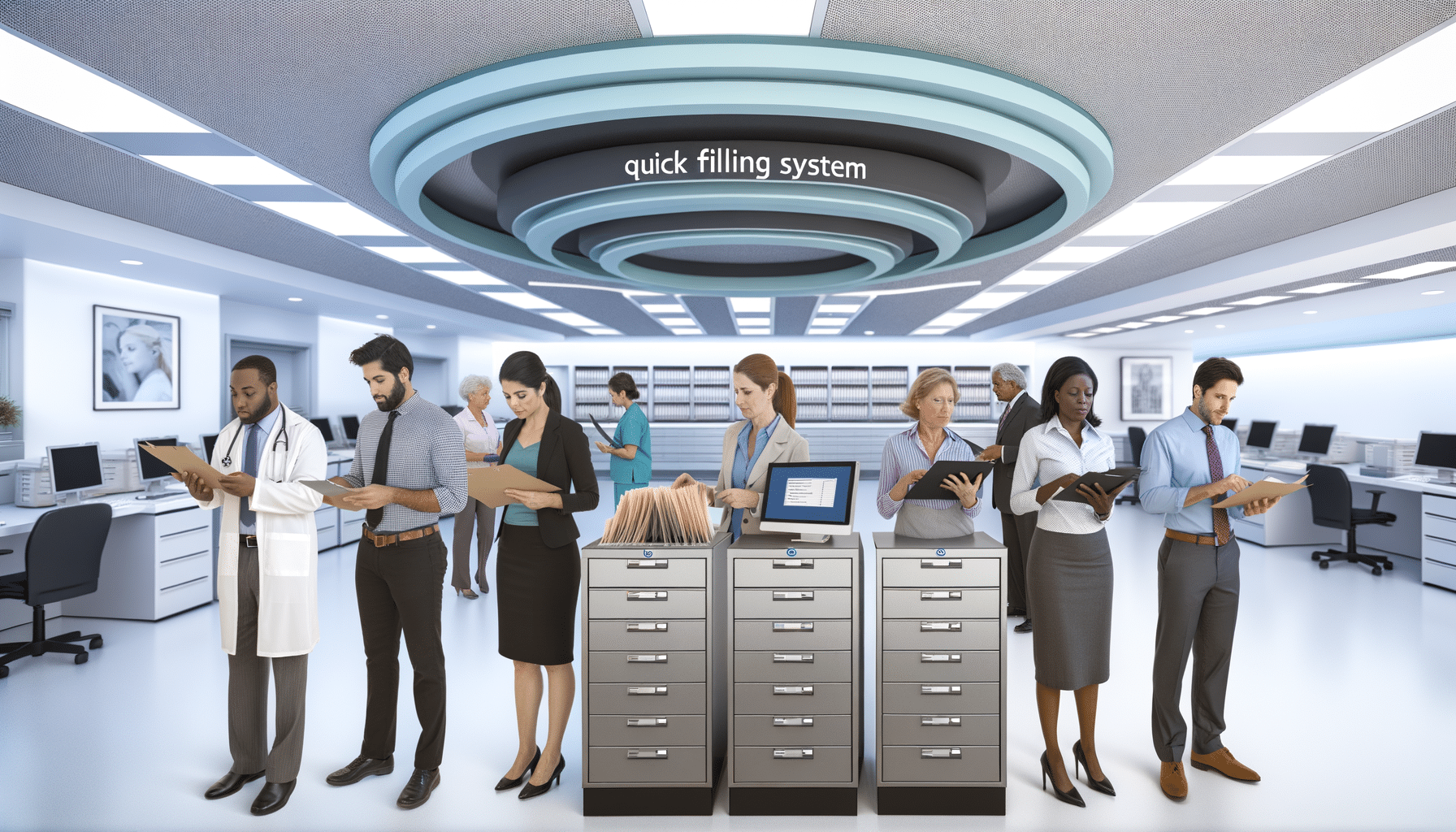- AI in Healthcare
- November 16, 2024
AI in Healthcare Record Interoperability

Revolutionizing Healthcare Record Interoperability with AI: A Game-Changer for the Industry
As a creator of RecordsKeeper.AI, an innovative platform currently shaking up traditional record management paradigms, I’m thrilled to see how artificial intelligence continues to forge a new path in various industries. Among its many sectors, healthcare stands on the brink of a major transformation thanks to AI and its capacity to facilitate interoperability between medical records.
Understanding the Interoperability Challenge in Healthcare
The healthcare landscape is multifaceted, involving an extensive range of patient data and numerous organizations working hand-to-hand. This complexity often results in significant obstacles when attempting to share patient records across different systems, creating a siloed landscape that hampers patient care.
No hospital should struggle to provide seamless, integrated care due to administrative hiccups or outdated systems. Yet, it’s an unfortunate reality for many healthcare facilities. That’s precisely where AI steps in to revolutionize record management and interoperability, unveiling a myriad of opportunities for streamlining processes and improving patient outcomes.
AI as the Key to Unlocking Interoperability
When you marry AI with healthcare interoperability, you open doors to improved data exchange mechanisms across providers, payers, and patients. Here’s how AI effectively functions as a catalyst:
- Automated Data Mapping: AI platforms can automatically map patient data from one system to another without requiring labor-intensive manual processes. This capability not only saves time but also minimizes errors inherent in manual data entry.
- Enhanced Data Security: Ensuring the secure transfer of sensitive health information is paramount. Robust AI systems deploy advanced encryption and data anonymization methods that safeguard patient data throughout its journey.
- Real-time Data Analysis: The swiftness of AI goes beyond record storage, enabling healthcare professionals to access and analyze patient information in real-time. This feature allows for immediate insight-driven decision-making to enhance the level of care patients receive.
- Seamless Collaboration Across Systems: AI facilitates seamless data exchange across various healthcare systems and software modules. This level of collaboration ultimately supports a more integrated and cooperative healthcare environment.
Real-world Examples Leading the Charge
Exciting examples of AI-powered interoperability are emerging worldwide. Consider a scenario at a busy urban hospital where AI-driven software combines patient information from multiple departments into a single comprehensive overview. This AI tool helps medical staff keep track of a patient’s journey through hospital care, ensuring they receive the best treatment and advice. In another groundbreaking initiative, AI algorithms optimize the process of record retrieval and sharing, leading to reductions in appointment wait times and improved continuity of care.
These real-world examples are evidence of how AI is revolutionizing interoperability across healthcare. It’s more than just an exercise in data sharing; it’s an opportunity to provide patients with timely care, better diagnoses, and effective treatment plans—all through a coordinated effort that leverages the power of AI.
The Future of Healthcare Records: AI-driven Innovation
Looking forward, the prospects for healthcare interoperability with AI integration are astounding. Innovations are underway to create AI-powered tools that predict potential patient health risks by analyzing myriad health records even before symptoms arise. Smart systems are on the rise, poised to suggest personalized treatment routes and manage patient care pathways in ways we’ve never seen before.
Moreover, blockchain technology compatibility with AI offers an even more robust solution, reinforcing data integrity and fostering trust between patients and healthcare providers. Blockchain combined with AI in record management could soon become an industry standard, providing unmatched transparency and accountability.
My Vision for the Future
AI’s role in healthcare continues to expand, and at RecordsKeeper.AI, I am passionate about being part of this transformative journey. Our mission is to empower healthcare professionals and administrators with powerful tools that harmonize data for faster communication and efficient patient care.
Embracing these advancements isn’t just about adopting new technologies; it’s about acknowledging the profound shift in healthcare dynamics and ensuring that we capitalize on these changes to the best advantage of patients worldwide.
Join Me on This Journey
These are exciting times, and whether you’re part of a healthcare organization or simply curious about the tremendous impact AI can have, it’s the perfect time to explore these emerging technologies. I invite you to delve deeper into the world of AI-driven healthcare interoperability and join me in shaping an innovative, patient-centered future.
To stay connected and for more insights into groundbreaking technologies in healthcare and beyond, follow my journey and let’s continue to innovate together.
Toshendra Sharma is the visionary founder and CEO of RecordsKeeper.AI, spearheading the fusion of AI and blockchain to redefine enterprise record management. With a groundbreaking approach to solving complex business challenges, Toshendra combines deep expertise in blockchain and artificial intelligence with an acute understanding of enterprise compliance and security needs.
Related Posts

Quick Filing Systems for Busy Clinics
Efficient filing methods for high-traffic medical offices.
- December 16, 2024

Handling Rush Requests for Medical Records
Managing urgent medical record requests efficiently.
- December 1, 2024
Archives
- January 2025
- December 2024
- November 2024
- October 2024
- September 2024
- August 2024
- July 2024
- June 2024
- May 2024
- April 2024
- March 2024
- February 2024
- January 2024
- December 2023
- November 2023
- October 2023
- September 2023
- August 2023
- July 2023
- June 2023
- May 2023
- April 2023
- March 2023
- February 2023
- January 2023
- December 2022
- November 2022
- October 2022
- September 2022
Want to get more content like this?
Signup to directly get this type of content to your inbox!!
Latest Post
Document Control for Equipment Maintenance
- January 20, 2025
Managing Records for Multiple Clients
- January 19, 2025
Handling Conference Documentation
- January 18, 2025
Setting Up Department Record Reviews
- January 17, 2025





